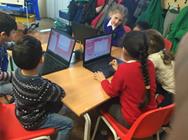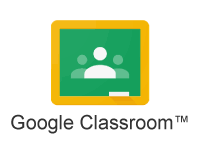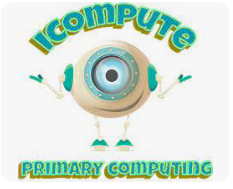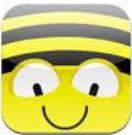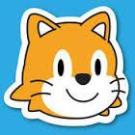Technology is an essential component to all of our lives, which was highlighted more so than ever during recent lockdowns. It is therefore our belief that ‘Computational Thinking’ is an imperative skill in order for children to participate effectively in today’s digital world and to provide opportunities for their learning and growth. At Park Primary School, we offer a broad and balanced Computing Curriculum, where all children have access to a device during computing lessons in order for them to achieve progression and continuity as they move through school. We use the iCompute scheme of work to teach computing lessons which has been chosen as it matches our core values of aspiration and creativity. It is a progressive and challenging curriculum that is designed in a way that makes it easy to use the skills learned in computing lessons across other subjects and therefore consolidate learning. When children are equipped with the skills to think computationally, then they have the tools to use computer-based technology which will help them in their future endeavours. Alongside this, at all times there will be a fundamental emphasis on teaching the importance of E-Safety. This is to ensure that children are encouraged to use technology safely, respectfully and responsibly in order to keep them safe online both in school and outside of school.
In Computing the children are taught:
- To become competent, confident and creative users of information and communication technology,
- To work collaboratively as well as developing independence, resilience and persistence,
- To think logically, analyse and solve problems through the concepts of Computer Science,
- To use technology purposefully to store, manipulate, create, organise and retrieve digital content,
- To use technology safely and respectfully.
The curriculum aims to do this through three strands. Computer Science (CS), Information Technology (IT) and Digital Literacy (DL).
Computer Science (CS)
KS1:
Understand what algorithms are; how they are implemented as programs on digital devices; and that programs execute by following precise and unambiguous instructions
Create and debug simple programs
Use logical reasoning to predict the behaviour of simple programs
KS2:
Design, write and debug programs that accomplish specific goals, including controlling or simulating physical systems; solve problems by decomposing them into smaller parts
Use sequence, selection, and repetition in programs, work with variables and various forms of input and output
Use logical reasoning to explain how some simple algorithms work and to detect and correct errors in algorithms and programs
Understand computer networks including the internet; how they can provide multiple services, such as the World Wide Web
Appreciate how (search) results are selected and ranked
Information Technology (IT)
KS1:
Use technology purposefully to create, organise, store, manipulate and retrieve digital content
KS2
Use search technologies effectively
Select, use and combine a variety of software (including internet services) on a range of digital devices to design and create a range of programs, systems and content that accomplish given goals, including collecting, analysing, evaluating and presenting data and information
Digital Literacy (DL)
KS1
Recognise common uses of information technology beyond school
Use technology safely and respectfully, keeping personal information private; identify where to go for help and support when they have concerns about content or contact on the internet or other online technologies
KS2
Understand the opportunities [networks] offer for communication and collaboration
Be discerning in evaluating digital content
Use technology safely, respectfully and responsibly; recognise acceptable/unacceptable behaviour; identify a range of ways to report concerns about content and contact.
|
|
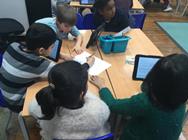 |
|
|
At Park, we use Google for Education tools and resources in many of the areas of our curriculum. In short, it is referred to as GSuite and it comes with many applications for different areas of computing. All of our KS1 and KS2 children have access to Google Classroom where their teachers can post homework, add links to programmes they can use during lessons; or simply share resources that can either be used in class or at home. GSuite comes with applications that make it easy for children to practise their word processing, data handling, presentation and many other IT skills. All year groups use the iCompute scheme of work for their computing lessons and teachers use the progression of skills document to help them map out the skills that pupils need to acquire throughout their time at Park. |
|
|
| Areas | Apps | Websites/ Programs/ Devices |
| Programming |
Bee-bot programming |
Key Stage 1 |
|
Daisy the Dino |
Key Stage 2 |
|
| Word Processing |
Key Stage 1 J2e (School program) |
|
| Data Handling |
Numbers |
Key Stage 2 |
| Online safety |
Key Stage 1 |
|
|
Key Stage 2 |
||
| Animation |
iMovie |
Microsoft Power Point J2e (School program) |
| Presenting |
Ipads/ tablets to video record Microsoft Power Point Google Slides |

